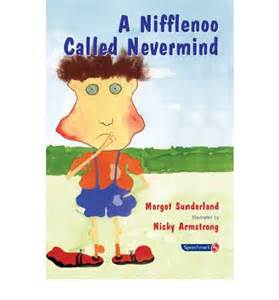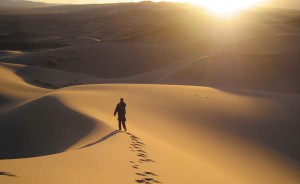Ultimate Gratification
John 6:51-58
51I am the living bread that came down from heaven. Whoever eats of this bread will live forever; and the bread that I will give for the life of the world is my flesh.” 52The Jews then disputed among themselves, saying, “How can this man give us his flesh to eat?” 53So Jesus said to them, “Very truly, I tell you, unless you eat the flesh of the Son of Man and drink his blood, you have no life in you. 54Those who eat my flesh and drink my blood have eternal life, and I will raise them up on the last day;55 for my flesh is true food and my blood is true drink. 56Those who eat my flesh and drink my blood abide in me, and I in them. 57Just as the living Father sent me, and I live because of the Father, so whoever eats me will live because of me. 58This is the bread that came down from heaven, not like that which your ancestors ate, and they died. But the one who eats this bread will live forever.
St. Andrew’s Presbyterian Church
We’ve talked a lot about bread lately. The Gospel reading from the lectionary has been about bread for 4 weeks in a row now, as we’ve journeyed through John, Chapter 6.
That (very long) chapter of John is all about bread, actually. It starts with the feeding of the 5000+ and continues on, even after Jesus walks across the water, he keeps talking about living bread. This long sequence of bread stories is used to show the inability to grasp the living bread that Jesus offers. That is why this long Chapter keeps . . . . talking . . . about . . . . bread. The people just don’t get it, and the author wants us to recognize that, neither do we. They, and we, and humanity in general can’t seem to understand it, no matter how much Jesus talks about it.
Why is that? Why do we have such a hard time with the living bread of Jesus? Brett summarized this very well a few weeks ago, proclaiming that the living bread is Jesus. It does have a lot to do with feeding our world and food justice, but the bread that Jesus is talking about is himself. He makes this graphically clear in today’s passage, using flesh and blood language that is shocking to our sanitized culture. What he’s saying is this is about him, about us taking him into our lives. We are what we eat, and we should nourish ourselves on Jesus. It starts with the life that we are called to live, as members of Christ’s flesh and blood. He promises us that this bread of life will sustain us and our world and community forever . . . when we grasp hold of it. Yet time and time again, the people ask for something less, for the immediate gratification of ordinary bread to satisfy our immediate appetites.
One of the greatest pieces of literature that we have talks about this problem of grasping the living bread of Jesus. In the great novel, some would say the greatest novel, The Brothers Karamazov by Fyodor Dostoevsky, there is a little parable within that novel that is called “The Grand Inquisitor”[i] and the entire story hinges on it.
This parable is told by Ivan, the 2nd brother Karamazov, to his younger brother Alyosha. Ivan is an atheist and Alyosha is a Christian, their family is in the midst of very complex struggles and wrestling with deep questions. So, over dinner, Ivan tells Alyosha this parable of “The Grand Inquisitor.”
It is set in Spain during the Inquisition, in Seville where the stakes are burning all around. It starts with Jesus showing up, reappearing to the masses where he is immediately recognized. Those who touch him are healed, he raises a 7-year-old girl from the dead, and then Jesus is arrested by the Cardinal Grand Inquisitor. The Inquisitor immediately sentences Jesus to burn at the stake.
The next morning he shows up to talk with Jesus. And in this talk, the Grand Inquisitor condemns Jesus for all of this bread of life talk and action that we see in the Gospels. In particular, he argues that Jesus made the wrong choice when he was tempted in the wilderness by Satan. He should have turned the stones into bread, in particular. As the Grand Inquisitor lays out his case, he claims that Jesus made the wrong choice with all 3 of the temptations, and his entire earthly life for that matter, and so the Church has corrected his mistakes. They have taken it upon themselves to claim “the miracle, the mystery, and the authority” that Satan had originally offered to Jesus. And they have done this for the sake of humanity.
And, before you get thrown off by the whole “church joining with Satan to condemn Jesus” storyline, the Grand Inquisitor actually makes some good points. His entire argument is actually driven by his recognition of human suffering and a desire to end that suffering. And this makes complete sense as a parable told by Ivan Karamazov, for that is the reason that he is not a Christian. Human suffering/the problem of evil is the roadblock to his faith. As you can see quoted on the front of your bulletin today, Ivan’s Grand Inquisitor makes the claim that,
“That day must come when men will understand that freedom and daily bread enough to satisfy all are unthinkable and can never be had together, as men will never be able to fairly divide the two among themselves.”
– The Grand Inquisitor by Fyodor Dostoevsky
And I have to say that this claim is hard to argue against. I certainly can’t argue against it. Freedom or daily bread? The human race has not shown the ability to share those commodities for all. Someone who goes by the name of Ghandi echoed the Grand Inquisitor when he said, “The world has enough for everyone’s need, but not enough for everyone’s greed.”[ii] Daily Bread or freedom. What do we do with our freedom? What do we do with our daily bread? Those of us who have it?
The Grand Inquisitor claims that Jesus took the wrong approach to this problem, precisely because he thought too highly of us. Jesus kept insisting that we are free to choose how we will live and worship and be. Jesus has faith in us, as he calls us to choose faith in Him. The Grand Inquisitor argues that Jesus is foolish. His case is laid out and punctuated by this claim,
“Thy refusal to come down from the cross when people, mocking and wagging their heads were saying to Thee — ‘Save thyself if Thou be the son of God, and we will believe in Thee,’ was due to the same determination– not to enslave man through miracle, but to obtain faith in Thee freely and apart from any miraculous influence. Thou thirstest for free and uninfluenced love, and refuses the passionate adoration of the slave before a Potency which would have subjected his will once for ever. Thou judgest of men too highly here, again, for though rebels they be, they are born slaves and nothing more.” -The Grand Inquisitor in The Brothers Karamazov, by Fyodor Dostoevsky
The Grand Inquisitor has spoken and laid out a compelling case that we are better off without freedom. Free will is the problem. He offers the counter argument to what Jesus said to us in today’s Gospel reading. While Jesus continues to call us to a freely chosen life of loving him, of living like him, the Grand Inquisitor says, “It ain’t gonna happen.” He looks around at the world and at the reality of human suffering and says that Jesus’ efforts are futile and that we will all be better off as slaves, driven by authority to live orderly, safe, and secure lives.
He echoes the Israelite people, by the way. Remember when they were maybe 5 steps into the wilderness after leaving the brutal slavery of Pharoah. “If only we had died by the hand of the Lord in the land of Egypt when we sat by the fleshpots and ate our fill of bread; for you have brought us out into this wilderness to kill this whole assembly with hunger.” (Exodus 16:3) This is what they said to Moses. They craved slavery, and remembered it (or misremembered it) fondly. The Grand Inquisitor takes that verse as Exhibit 1A in his case against Jesus. People just want security and meat and bread. They truly want to be slaves. Is he correct?
That is the question we are faced with? Throughout the story of Israel, we see this struggle between freedom and slavery, and we see it again in the story of Jesus and his followers, even between Jesus and his closest disciples. We see this played throughout John, Chapter 6. Jesus gave them bread, walked on water, called them to a life of faith and sacrifice that he will demonstrate fully on the cross very soon. The people want more of the bread and the miracles, and Jesus wants them to live fully.
“Then Jesus said to the Jews who had believed in him, “If you continue in my word, you are truly my disciples; and you will know the truth, and the truth will make you free.” – John 8:31-31
What do we want? Do we want the immediate gratification that is offered to us? The secure, safe life that fills our belly in the moment. Or do we want freedom? The freedom to love freely, to risk a life of faith in Jesus that demands everything from us, and promises life abundant, life to the fullest, for us and for those we touch? Are we willing to love as Jesus loved, and witness abundant life? Do we want immediate gratification or ultimate gratification? That is the question we are left with in this argument between the Grand Inquisitor and Jesus, and in our own lives.
I feel the weight of this question every day. When I’m faced with a choice of loving another person, and becoming vulnerable in some way, the desire for safety and security battles with the desire to follow Jesus. When I recognize the racial and class inequality in our country that has created so much frustration in minority communities. When I realize that what we have seen in Ferguson, Missouri over this past week and this past year is one symptom of massive injustice, I feel torn between the vulnerability of love and the security of maintaining the status quo. What do I do with my freedom? What do I do with my daily bread? Do I make efforts for all to have the same?
These are the questions that are raised by Jesus and the Grand Inquisitor. During their discussion, Jesus said nothing. When the Inquisitor had finished talking, he waited for Jesus to respond, eagerly hoping for a bitter response, for a battle. But Jesus simply looked upon him with warmth and compassion, “he rises; slowly and silently approaching the Inquisitor. He bends toward him and softly kisses the bloodless, four score and ten year old lips. That is all the answer. The Grand Inquisitor shudders. There is a convulsive twitch at the corner of his mouth. He goes to the door, opens it, and addressing him, “go, and return no more . . . do not come again . . . never, never!’ and — lets Him out into the dark night. The prisoner vanishes.” And the old man? “The kiss burns his heart, but the old man remains firm in his own ideas and unbelief.”
The parable is echoed in the broader story of the Brothers Karamazov. Ivan, like the Inquisitor, leaves a path of destruction and sadness in his wake, while Alyosha, the simple, gentle soul, absorbs abuse but brings grace and healing wherever he goes. He lives an abundant life. And so it is with us.
We are blessed in this church family to witness counter-arguments to the Grand Inquisitor, in flesh and blood, all around us. We don’t have to look any further than Jean Calhoun, who passed from this life into the next on Friday morning. Her son, John, wrote a beautiful encomium about her life, in which it is clear that she lived an abundant life. And it is not the 101 years and 11 months that show abundance to us, but it is her consistent efforts to serve others, especially to serve “the least of these” throughout her long life. What a beautiful response to the human condition her life was. We are all called by Jesus to seek this same living bread, the freely chosen love of one another, wherever we go.
[i] Dostoevsky, Fyodor The Brothers Karamazov Book V, Chapter V
[ii] https://www.goodreads.com/quotes/427443-the-world-has-enough-for-everyone-s-need-but-not-enough




















